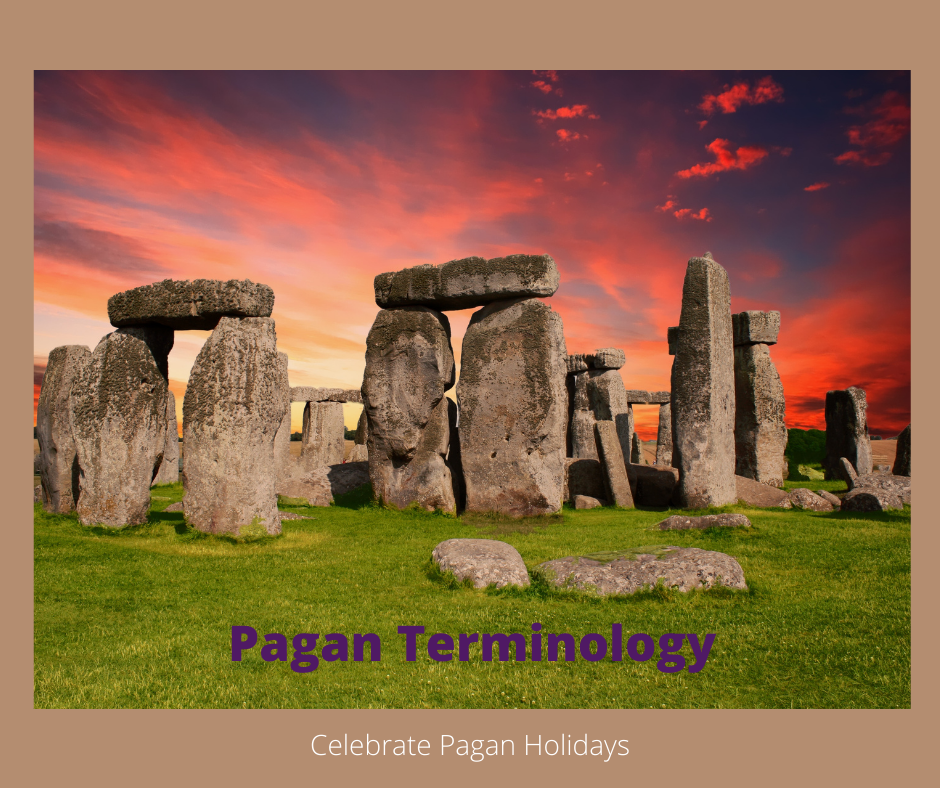There is often a lot of confusion surrounding pagan terminology. Paganism, Pantheism, Panentheism, Animism, Astrotheology, and Anthropomorphic are all terms used to describe religious philosophies.
All those P’s and A’s. It can all be very confusing. Here is a breakdown of terms with easy-to-understand definitions and examples.
What is Paganism?
Paganism is the belief in multiple deities or many gods and goddesses. The term was “coined” by the early Christians to describe the non-Christians around them. In addition to the words heathen and gentile.
Today we use the term broadly to describe those of us who worship traditional religions of ancient cultures as well as nature-based religions. Traditional religions may include Ancient Rome and Egypt and Celts and Norse.
Pagans today are often referred to as modern or neopagans.
We have a great Intro to Paganism on the website. Check it out.
What Is A Holistic World View?
Many pagans believe that everything in the universe is connected. This holistic view of our world says everything is interconnected.
Starhawk stated it very clearly "the understanding that all being is interrelated, that we are all linked with the cosmos as parts of one living organism. What affects one of us affects us all."
Pantheist symbol of the universe & the nautilus shell side by side.
What is Pantheism
Pantheism does not recognize a personal god but believes God is in us all. Pantheism is the belief that everything in the world is part of an all-encompassing, omnipresent God. So while you have individual body parts such as your brain, heart, and fingers they are all part of your whole body.
A pantheist rejects the belief that there is a god with an individual personality. They would see god as the forces and laws of nature.
Pantheists are not atheists (people who do not believe in a divine creator). Pantheists still feel a connection to the universe and the life it contains. They just feel they can relate to nature without any symbols or gods to mediate or be part of that relationship.
Pantheists are often supporters of scientific inquiry. Albert Einstein stated that "science without religion is lame; religion without science is blind," emphasizing that pantheism is neither anti-religious nor atheistic.
Interlinking of Paganism and Pantheism
The two have many things in common. Observation of natural cycles such as the lunar cycle and the solstices.
Many pagans consider themselves pantheists. Both regard nature as a unified whole. However, most pagans use divine gods, spirits, or magic to express their relationship with nature.
Pantheists do not believe in divine intervention, magic, reincarnation, or an afterlife.
Pantheon
One reason these terms are often confused is that they come from the same Latin or Greek root words. A pantheon is a grouping of respected people and is often used to describe a collection of deities. For instance, the Ancient Roman pantheon would include Jupiter, Juno, Neptune, Minerva, Venus, and Diana.
Panentheism
Here is where you have to pay attention to the spelling. Just two added letters change the meaning.
Panentheism is a belief system that feels the divine intersects with everything in the universe and extends beyond it. A universal spirit exists everywhere.
Panentheism is different from pantheism because panentheists believe there is a difference between the divine and the non-divine. They also allow the viewpoint of a personal god.
Western mysticism, many Native American religions, and the Transcendentalists are examples.
Polytheism
Many pagans identify as polytheists. Polytheism is the belief in more than one god and/or goddesses. Popular pagan examples are Egyptian, Norse, Roman, and Wiccan religions. In addition, it includes the many tribal religions throughout the world including the Cherokee, Yoruba, and Mesopotamians.
Polytheist religions often have a hierarchy of gods and goddesses over certain places or powers. They frequently have symbols and attributes.
For instance, Neptune is the Roman God of the Sea. His symbol is a trident. He controlled weather, water, and watched over fishermen.
Animism
Animism is the belief that all things have a spirit. This would include animals, plants, rocks, and water. Each object has an individual spirit and is not necessarily part of a greater whole.
In this system, animists often see the need to honor or placate the spirits. For instance, if a deer is killed for food then its spirit must be graciously thanked. When a tree is cut for firewood its spirit is thanked and possibly a new tree is planted in its place.
Astrotheology
Astrotheology is the worship of the stars and planets as deities. In polytheism, we often have sun gods and lunar goddesses. (or vice-versa)
We see many of the planets named as deities in the Greek and Roman mythos.
Worshipping the stars and planets as part of our universe is a natural extension for many pagans and something our ancestors have done since the beginning of time.
In fact, there are numerous verses forbidding in it both the Bible and Koran. Often an interesting point of contention between Christians and pagans because the Wisemen followed a star to find the Christ child.
Astrology is a form of divination that forecasts behaviors and events by studying the heavenly bodies and their orbits.
Anthropomorphic
Anthropomorphism is when we give “human traits” to non-human things. This could be animals, plants, rocks, or water. Both psychologists and archaeologists view this as a more advanced way of thinking evolutionarily because humans are extending their own traits to other things.
Ancient religions are very anthropomorphic. For example, consider the Egyptian goddess Bast with a human body and head of a cat (or lion).
Anthropomorphism is frequently seen in the cultural mythology of the religion and after Christian conquering in the form of fables. Animals having characteristics similar to humans teach us lessons on how to be better humans.
Take Away
You may find your beliefs don’t fit nicely into a box and that’s ok. Take the time to consider these philosophies and how you may want to include them in your spiritual journey.
Founder and author, Ame Vanorio, loves looking into the meaning of words and the history of paganism.







Have you ever wondered how ancient Egyptian goddesses can inspire us today? Bastet, the Egyptian cat goddess is more than just a figure from mythology - her energy is alive and relevant today. Even though thousands of years separate us from ancient Egyptian culture, Bastet’s values remain relevant. By embracing her principles, we can reshape and enrich our lives, learn to find balance, and give back to our communities.